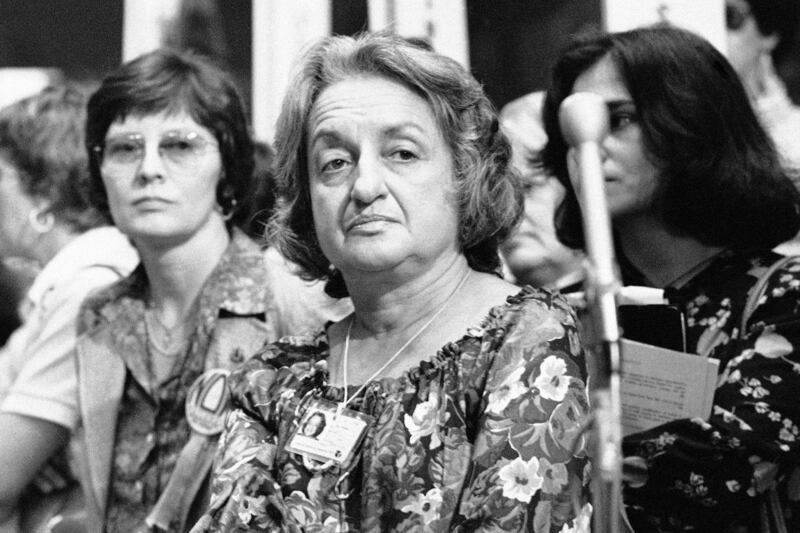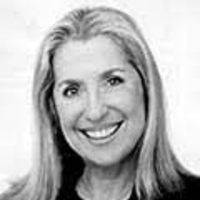Betty Friedan’s The Feminine Mystique was published 50 years ago this month, all but bringing the nascent second-wave feminist movement to the national spotlight. We asked three feminists, each representing a different generation, to discuss the intellectual legacy of the book. Letty Cottin Pogrebin is a founding editor of the feminist Ms. Magazine; Alisa Solomon is a drama critic and a journalism professor at Columbia University; Jessica Bennett is the executive editor of Tumblr and a former Newsweek senior writer. Here's what they thought of the classic text and the issues that it dealt with in Friedan’s time. Plus, part two: how the feminist movement has changed in five decades.
Jess: I've been thinking all week about having to sheepishly reveal to you all that I had never actually read The Feminist Mystique before this! Maybe I didn't need to read it—I think, for a lot of us, it felt like we'd had Friedan's message ingrained in us since we were teens. You can do anything! Don't hold yourself back! But reading the text for the first time this week, what struck me was just how relevant how many of her points remain. Consumer culture, women's magazines, depiction of our bodies, fear—there are parts that could have been written yesterday.
Alisa: I was an undergraduate in a progressive program at the University of Michigan called the Residential College, a place where feminism was taken for granted. It was the mid-‘70s and we were feeling the impact of Title IX, which had just gone into effect. I remember being impatient with the book’s repetitiveness and relentlessness and sensed that it wasn’t really talking to me since my friends and I already knew so ardently that we would not be looking for total fulfillment as housewives. Looking back now, I can see that so much of her critique did actually speak to our experiences beyond the context of “occupation: housewife” much as we may have felt we were past all that.

Letty: I read it in 1963, the year it was published, which was the year I was married. Back then I felt it was "natural" for me to fulfill the feminine role—come home from work and cook dinner. But I didn't feel the book was about me; I felt it was about my mother's generation of housewives who were trapped in their suburban kitchens while I was a hippy "career woman" who also happened to have a husband.
I mostly read it on the bus to and from work. The women at the publishing house where I worked were all reading it. The married ones with kids found it especially fascinating that a woman could complain out loud about "the problem that has no name." We all had housewife friends who were on Valium or drank booze as soon as they got the husband off to work and the kids to the school bus. The book was a phenomenon in terms of its sales so everyone in publishing was reading it and paying attention. The men at the water cooler at my office—think "Mad Men" which was exactly the atmosphere in which I worked throughout the 60s—found it laughable that any woman dared find fault with her life of luxury since they were providing their wives with "allowances," closets full of clothing, jewelry, charge accounts at the hairdresser's as well as food, status, sex, and patio furniture. The idea that a woman might feel infantilized by having to get her husband's signature to open a Bloomingdale's credit card never occurred to these guys.
In fact it never occurred to me either. I, too, needed my husband's signature for such things—back then women couldn't get loans, insurance, or bank accounts in their own names. But at work I had a Diner's Club card in my own name and I took men to lunch as part of my job so maybe I felt some compensatory social power. In short, while I was clearly disavowing the book's relevance to me, I was also admiring what it was doing for other women.
Alisa: I was struck by the rhetorical strategies and astonishing scope of the book. Friedan takes on psychology, advertising, education, media. And I was impressed by the tone of sympathy. There’s no victim-blaming, but a sense of solidarity with her subjects (despite many differences in her own life). The impact of social, political, economic change on women in the post-war era when, as she put it, “the nation stopped growing up”—her laying out and marshalling of the context—is part of what achieves that tone. It's the hard analysis—not any touchy-feely bromides—that helps create a sense of fellow (sister?) feeling.
In the epilogue Friedan decries the impact the "man-haters" were having on the nascent feminist movement. It sounded like her buying into an anti-feminist stereotype and maybe a coded condemnation of what she infamously described as the "lavender menace."
Letty: "Man-haters" may have been a coded condemnation of lesbians—and Friedan certainly had problems incorporating lesbian issues into her feminist ethos—but I don't think it's simply that. She knew that many of the more outspoken radicals were straight women whose extreme anti-male rhetoric was a shock-and-awe tactic intended to garner media attention—which it did in spades in the early years. In fact, she and her fur-coat wearing colleagues who marched on McSorleys were often eclipsed by women in overalls and combat books screaming about male chauvinism. I think she resented their spotlight-stealing capacity.
I think her railing against that sort of feminist was at its core an expression of a deeply personal need: Friedan was, to the very end of her life, a flirt and a man-pleaser. She wanted male approval even as she excoriated "men." She played to the guys at the dinner table, the men in any room, and even if dozens of women had their hands up, she always took the first question from a man in the audience. Later in her life, she dreamed of transforming the women's movement into a men-and-women's movement with battalions of men advocating for women's rights, and both genders marching arm-in-arm into the sunset.
I always believed her favoring of men over women must have had roots in her childhood and early romantic experiences: maybe she had to work hard to be loved. I know the end of her marriage was fiercely painful to her. She always struck me as someone who wanted to improve women's condition without losing men's love.
Alisa: I confess to feeling uncomfortable about bringing personality into the conversation. Not because it’s not relevant—especially for someone like you who was there—but I fear that the all-important issues might be dismissed or feminists further mischaracterized as bitchy, and so on. I’m inclined, therefore—and likely also because I didn’t know Friedan personally—to step back and wonder what the costs of fighting for intellectual space might have been for Friedan in the early ‘60s in New York. Was this a case of shouting ever more abrasively to be heard and recognized—even to the point of not being able to see the extent to which she was, in fact, heard and recognized? Did the amazing sweep and brashness of her prose in The Feminine Mystique somehow come with a price-tag of public brashness in general? Maybe neither she nor the culture was ready to deal with the book’s explosive power. The culture could figure out how to absorb the work without really changing sufficiently—the “repressive tolerance” Marcuse wrote of at about the same time—while it curdled something in her, perhaps.
Jess: It's hard to read the text objectively knowing what a controversial figure she became.
Alisa: The assumption that one risked men's love by working to improve women's condition seems to be an internalization of everything she was writing against—the "mystique" doing its work.
Jess: In the book, a young woman says, "Maybe education is a liability" because "even the brightest boys just want a sweet, pretty girl." A young woman today might not call education a liability (I hope), but I do think she has internalized cultural messages that tell her it's OK to be smart, but not too smart. It reminds me of a study I was reading recently about women in math and science. Some of the girls told researchers that they didn't want to take math classes, even though they liked the subject, for fear it would make them less "dateable."
Letty: In the 1950s, my mother always warned me to downplay my knowledge/ vocabulary/opinions. "Smart girls scare boys," she said, along with other classic ‘50s advice such as "Beauty hurts. Just grin and bear the misery of those 3-inch heels." Or, "Remember your ABCs: Always Be Charming!" And of course, "Boys don't make passes at girls who wear glasses." Which accounts for me stumbling through high school and college until contact lenses were invented.
Alisa: I, too, heard too many echoes in those comments, from the deep caves of my grad school days (yes, a professor slapped my butt and told me not to aspire to be a writer; sexual harassment was rampant and unmentionable). And yet, when I read the 1997 addendum that Friedan wrote for an edition published then—“Metamorphosis: Two Generations Later”—I was practically shouting back at her. That chapter is so sanguine and cheery. While it’s right and proper to name and celebrate all the achievements, I was thinking: Are you kidding? The Gingrich Congress was just installed! Abortion rights are dwindling all over the country!
Jess: Anybody read about New York City Council candidate Ed Hartzog? He asked a female reporter at a press conference what "a pretty girl like her" was doing reading campaign finance reports.
Letty: Hartzog's comment reminds me of Congresswoman Pat Schroeder's experience. When she got to the House for the first time in 1973, a member said, "How can you be a Congresswoman and a mother, too?"
Pat famously replied, "Because I have a brain and a uterus and I use both."








